Nepal: Natural History Exploration and Learned Societies
On Wednesday 2 November, we were privileged to host a lecture by Mark Watson (Royal Botanic Garden Edinburgh) who spoke on “Nepal: The Early Years of Natural History Exploration and the Role of Learned Societies”. Mark’s lecture was the latest in our series of lectures under the title of “Britain-Nepal 1816-2016”. The lecture provided a rich and detailed overview of the early history of natural history research in Nepal, conducted mainly under the auspices of the East India Company and by people associated with it.
In some cases research was officially directed by the EIC, but in others was conducted independently by people interested in the local environment. Mark highlighted the crucial role that learned societies in Britain and India played in bringing such people together, allowing them to exchange knowledge and information, as well as providing a human network to connect with people with shared interests. Whereas today universities and other public institutions play the primary role in the direction and dissemination of scientific research, in the early 1800s learned societies played a fundamental role in this regard, also helping to publish and publicize research, and gathering and making available collections of specimens.
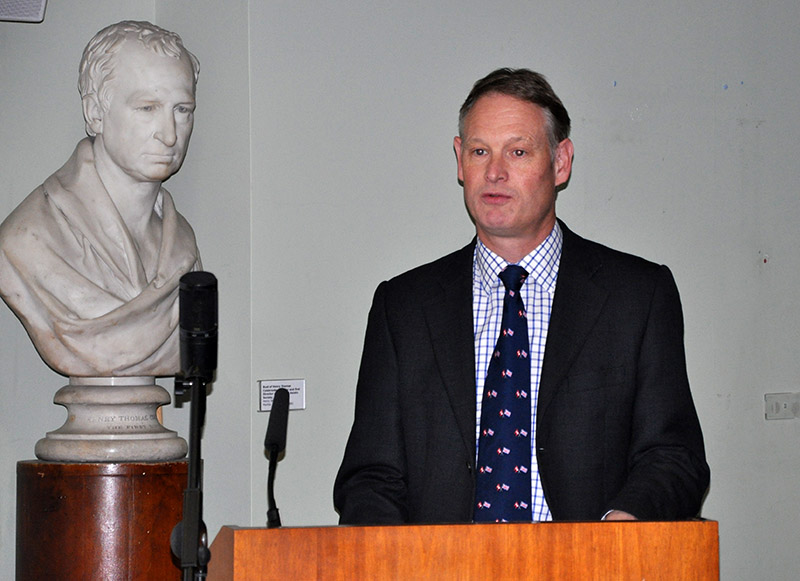
Mark covered the role played by a number of prominent individuals, including the likes of Sir Joseph Banks and Brian Houghton Hodgson, and also highlighted the contributions of some relatively unsung natural history pioneers who were largely uncredited for their work due to the vicissitudes of scientific publication and attribution in the early 1800s. Mark’s lecture was marvellously illustrated with portraits and beautiful examples of scientific drawing, which further enriched his fascinating presentation. The lecture was followed by a number of questions from an appreciative audience, and was followed by a reception.
This lecture came at a very apposite time for me. I have just begun to organise the Papers of Brian Houghton Hodgson that we hold in the archive ready for creating their online catalogue. The first item that I have listed – or rather I should say – the first 205 items that I have listed are the contents of an Autograph Book, created by Hodgson’s wife Susan and containing correspondence and certificates concerning Hodgson’s life and career. And many of these are connected with Learned Societies. I have chosen just a few to give a flavour of some of the Societies with which Hodgson was involved.
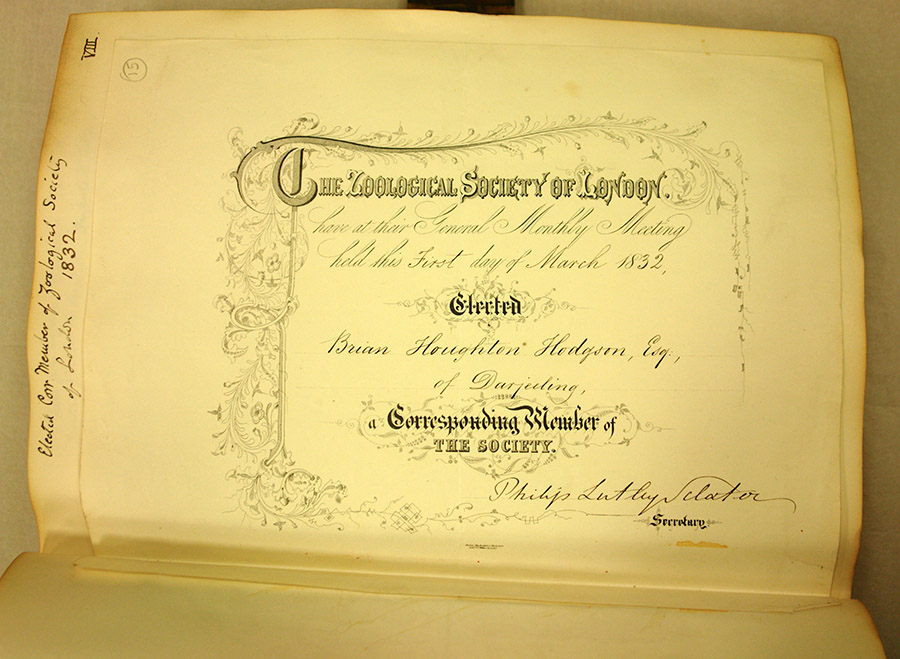
This certificate shows Hodgson’s election as a Corresponding Member of the Zoological Society of London in 1832. In 1859 he was awarded a Silver Medal in commemoration of his services as one of those who helped in creating the collection of Living Himalayan Birds in 1857.
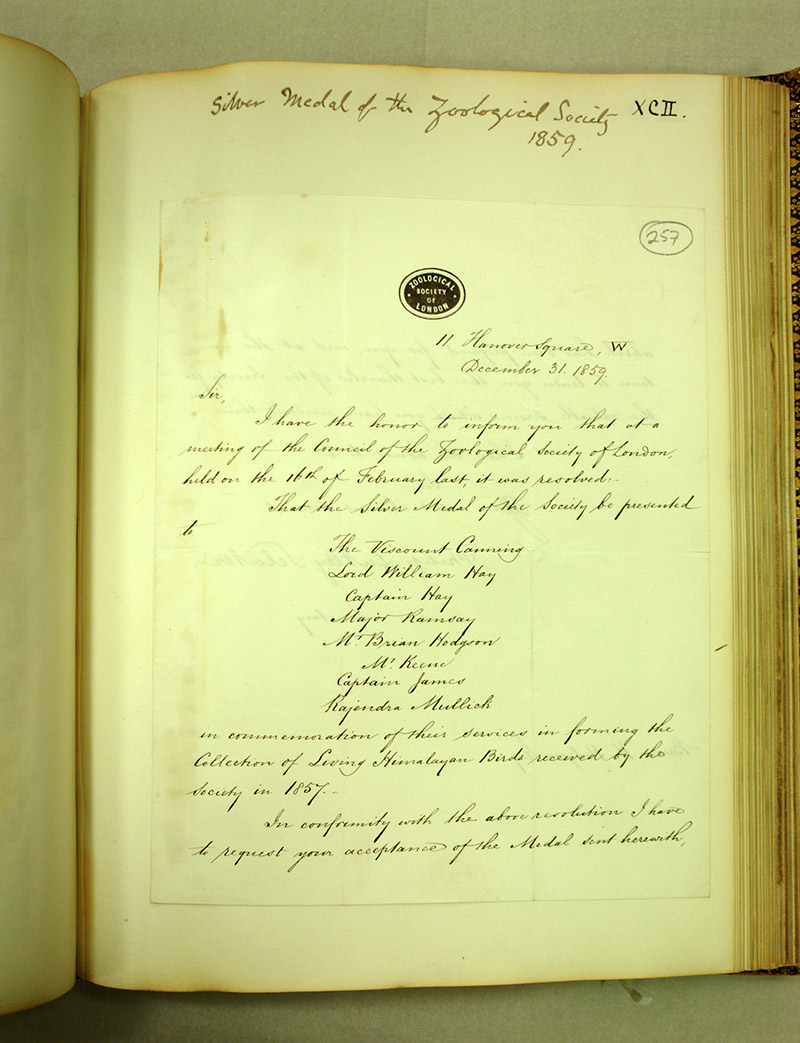
Hodgson was often very generous in his donations to the learned societies. Below is a letter, dating from 1836, from the Captain Henry Harkness, Secretary to the Royal Asiatic Society, to Brian Houghton Hodgson to thank him for his generous donation of the manuscript scripture of Satasahasrikāprajnāpāramitā and his promise of further donations of various other Buddhist scriptures including the Navadharma from Nepal. Harkness writes that the Council are in agreement with Hodgson on the Sanskrit language in which the Buddhist sages first committed their doctrines.
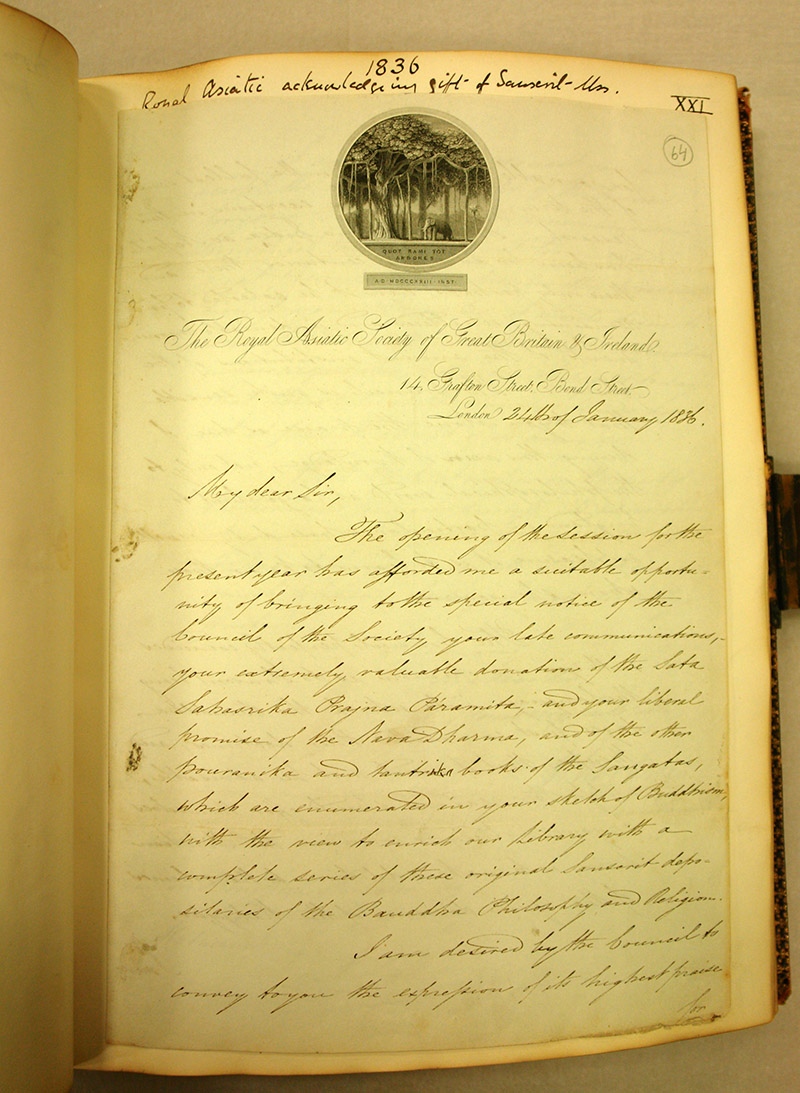
It was not only British learned Societies that benefited from Hodgson’s generosity – in fact, it was sometimes commented that he was better known in Europe than in England. Below is a letter from Eugene Burnouf of the Société Asiatique to thank Hodgson for his offer to purchase Sanskrit and Buddhist texts for the Society. He discusses various points concerning Buddhist literature. Hodgson continued to correspond with Burnouf right up to Burnouf’s death in 1852.
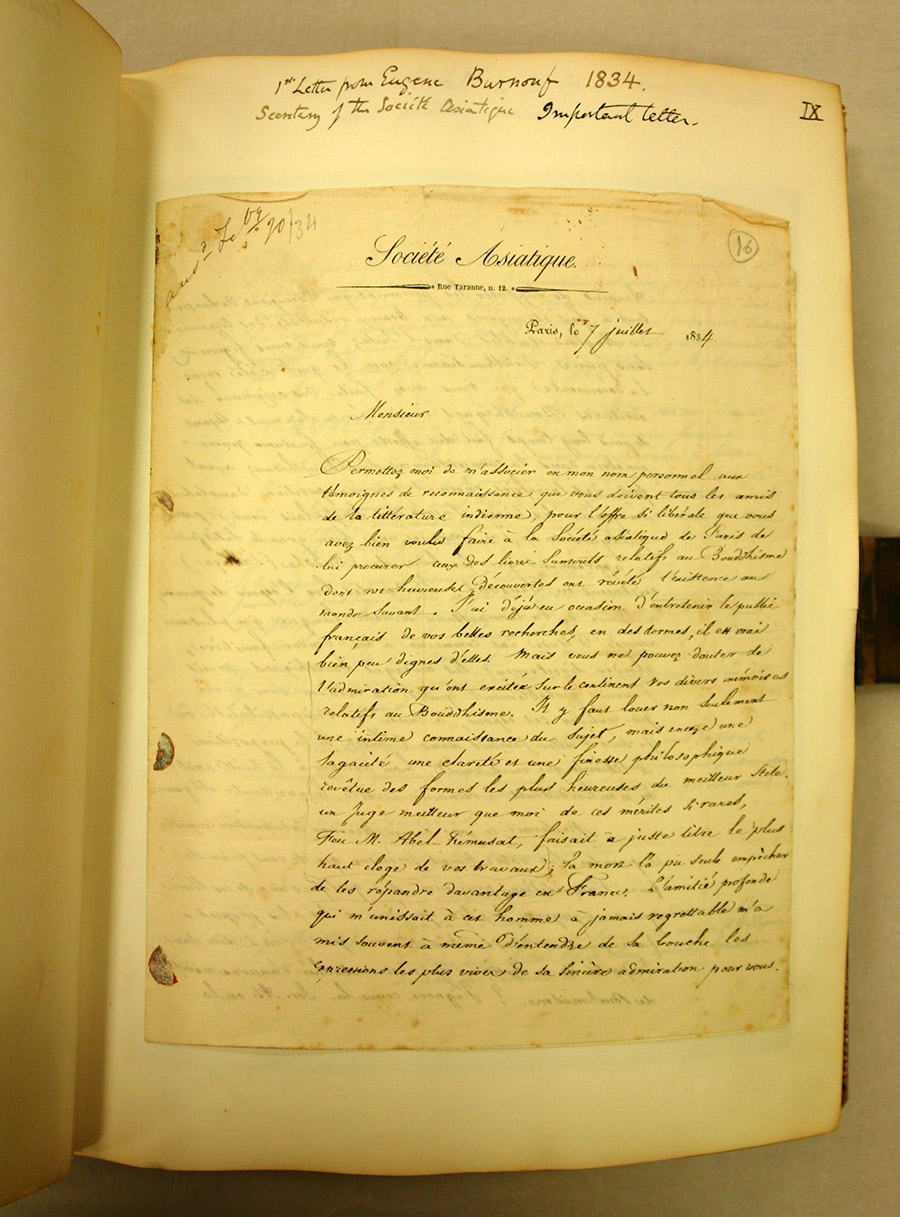
Hodgson was made a member of many societies. Here are just a few:-
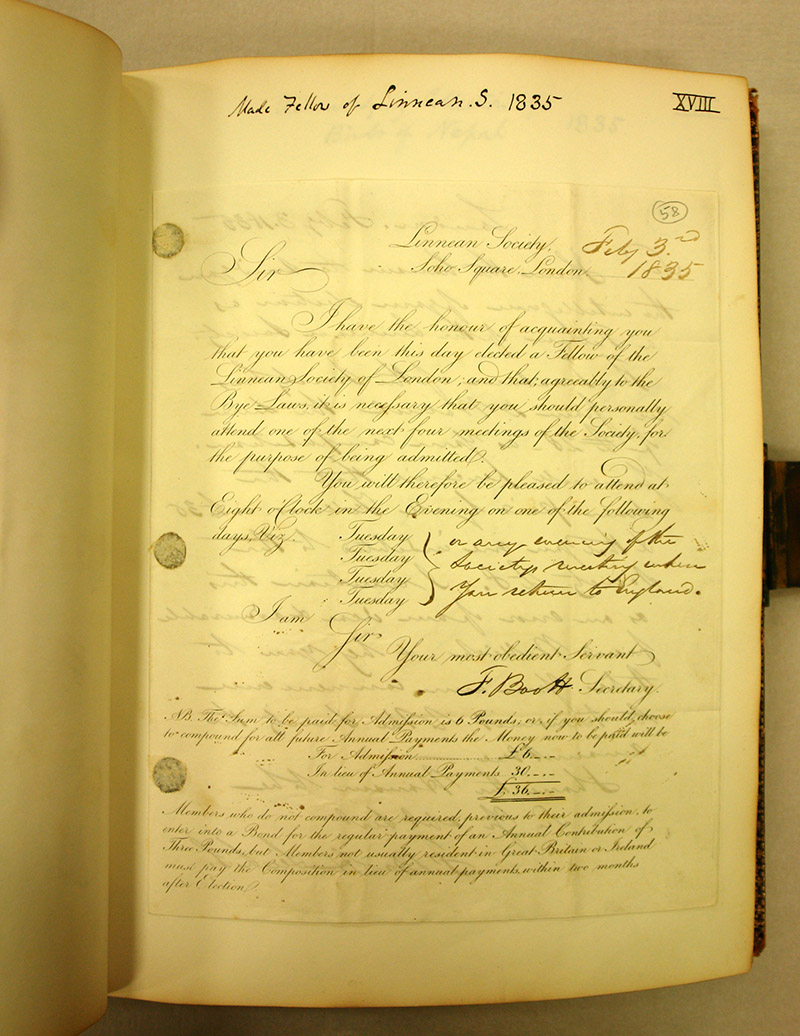
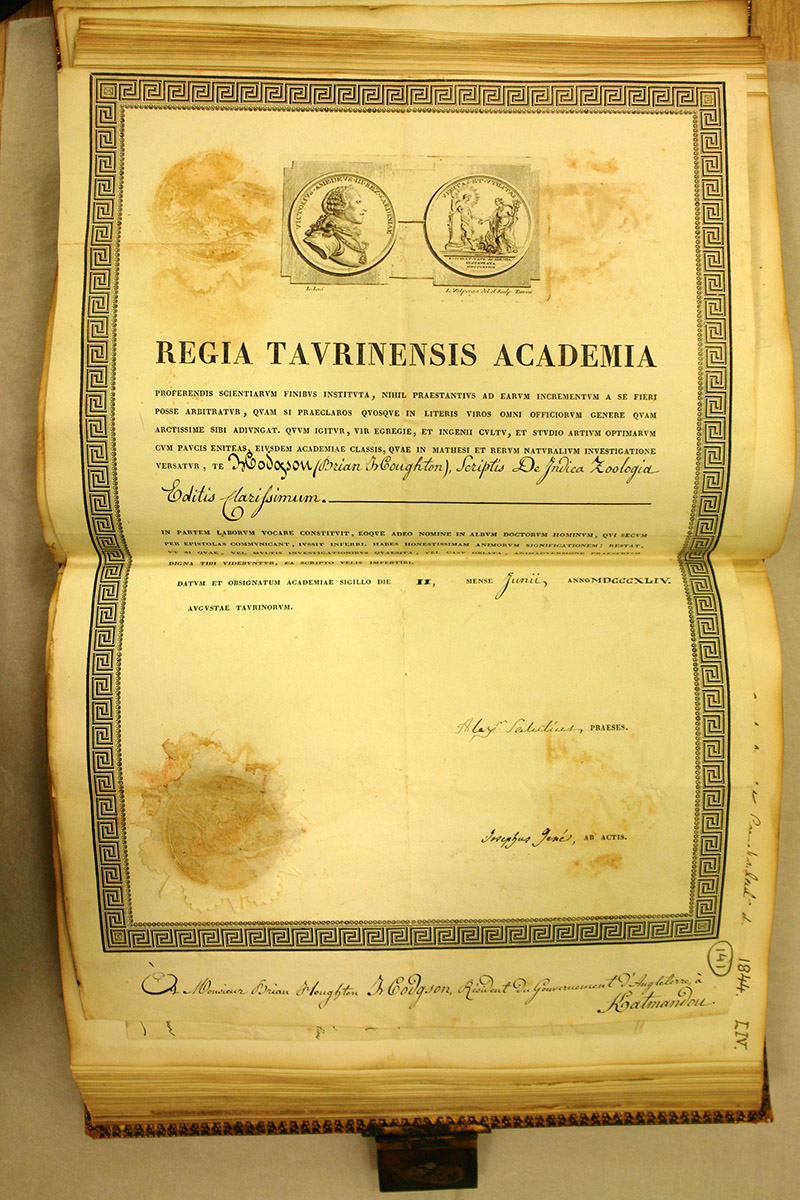

This Autograph book, thus provides, a good example of the role of learned societies in enabling investigation and knowledge to be shared, and for like-minded individuals to become connected.
We have more lectures next week on Monday 7th and Thursday 10th November. Please see our Events page for full details. We hope that you will be able to join us.
